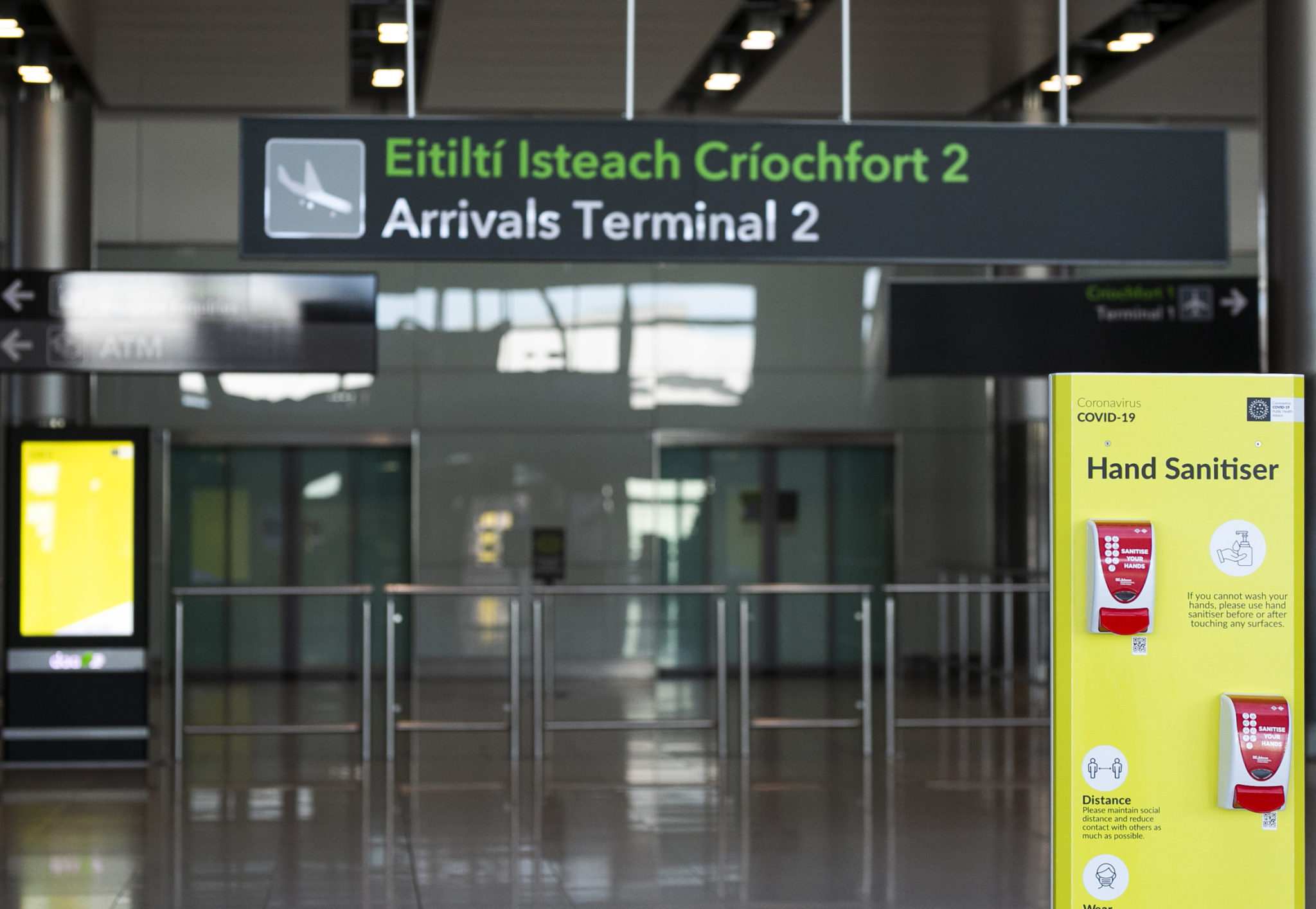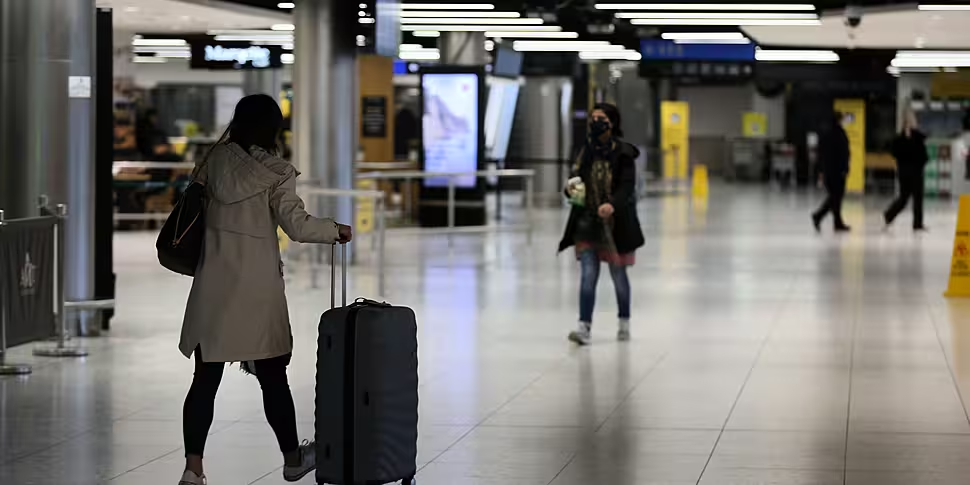Ireland needs to "get on top of" restrictions on travel in order to prevent more COVID-19 variants from being imported into the country.
That's according to Kingston Mills, Professor of Experimental Immunology at the School of Biochemistry and Immunology at Trinity College Dublin.
It comes as a further 13 'high-risk' countries have been added to the mandatory 14-day quarantine list.
Under the rules, anyone arriving here from a total of 33 countries is required to self-quarantine for a full 14 days.
Once the necessary legislation is passed by the Oireachtas in the coming weeks, arrivals from the countries on the high-risk list will have to quarantine in a hotel.
People arriving from other countries, in contrast, can stop quarantining if they have a negative COVID-19 test after five days.
There have been calls for tougher restrictions, yet a Labour motion to extend mandatory quarantine to all non-essential travel was defeated in the Dáil on Thursday.
Professor Mills told Newstalk Breakfast with Susan Keogh that travel restrictions play in intrinsic role in preventing more variants from arriving in Ireland.
"We really, really have to get on top of the travel and stop the importation of more variants," he said.
"Because if we don't do that, our vaccine programme could be under threat in the short term.
"I think the travel restrictions are integral to preventing the problems with the variants."
He has previously stated that strict international travel restrictions are “absolutely essential" in light of the drop-off in the effectiveness of current coronavirus vaccines against the new variants.
 The Arrivals hall at Dublin Airport. Photo: Sam Boal/Rollingnews.ie
The Arrivals hall at Dublin Airport. Photo: Sam Boal/Rollingnews.ieWhen COVID-19 first emerged last year, Professor Mills said a lot of scientists thought that "this wasn't going to be a varied virus, like the flu was, but that all changed in the last few months".
"It's now clear that this virus mutates quite significantly and the variants are a significant concern," he said.
Variants that are more transmissible have led to the "explosion" of coronavirus cases around the world in the last few months, but Professor Mills said his bigger concern is whether they will escape the effectiveness of the vaccines.
He added that studies show that the Johnson & Johnson vaccine, as well as the upcoming one from Novavax, are not as effective in South Africa where one of the variants first originated.
Additionally, a small trial in the country revealed that the AstraZeneca jab "wasn't effective at all" against the mutation, he explained.
Vaccines
The "upside" according to the immunology expert is that companies are already making different versions of their inoculations, with Pfizer stating it was producing a vaccine that will take account of all the different known variants.
"We're really lucky we're in a situation where scientists have been able to stay on top of this," Professor Mills said.
But making a vaccine before a variant has been identified can only be done with "great difficulty", he added.
The new vaccines will "take care" of the change in the spike protein present in the strains which emerged from Brazil and South Africa, "which has been the most insidious change that has occurred" in the virus.
"There are other ones that have been less of a problem, but of course that's not to say that other ones won't emerge in the future," Professor Mills stated.
"The thing is the companies are keeping on top of it, the scientists are keeping on top of it, and I think we need to be sequencing more variants here."









